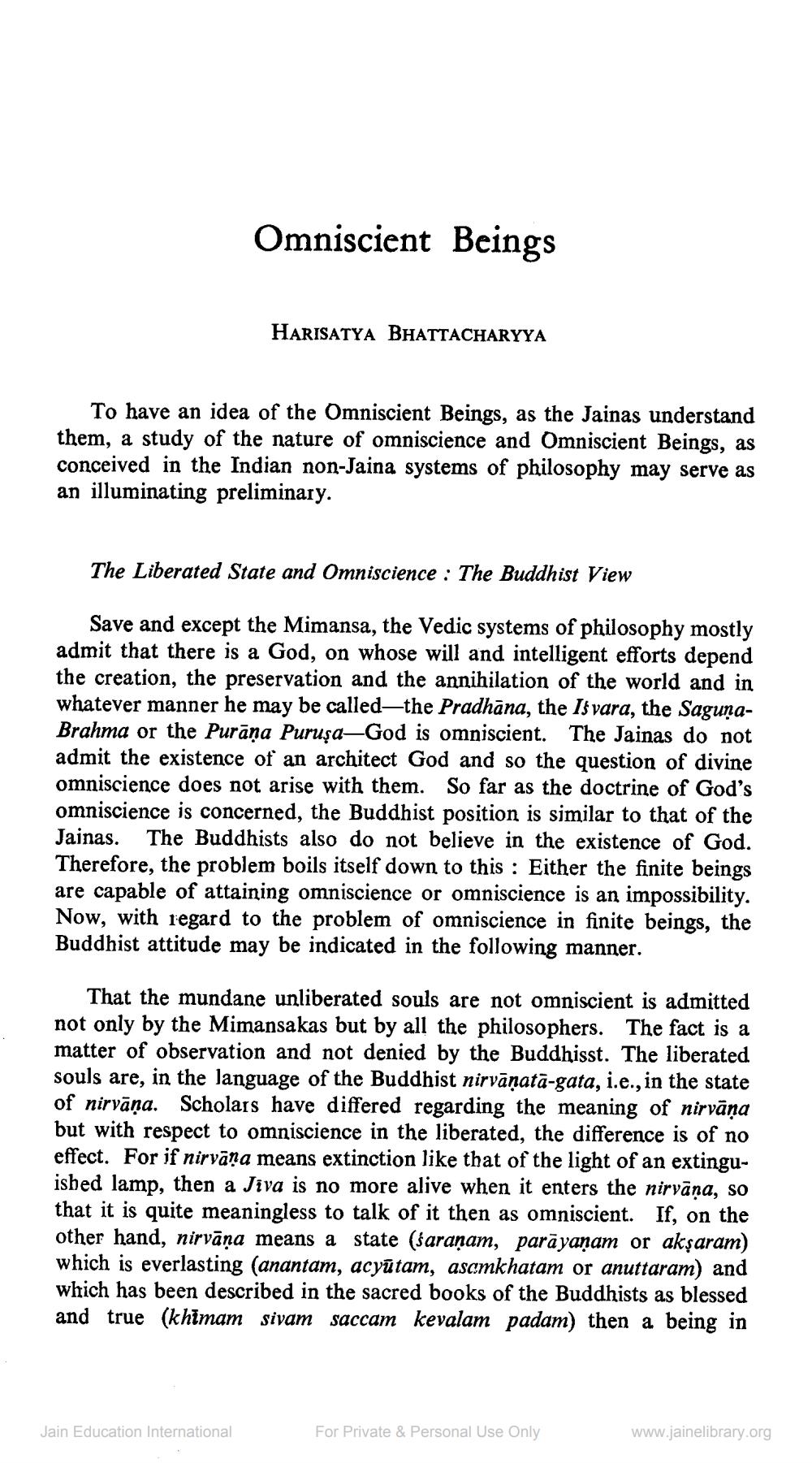________________
Omniscient Beings
HARISATYA BHATTACHARYYA
To have an idea of the Omniscient Beings, as the Jainas understand them, a study of the nature of omniscience and Omniscient Beings, as conceived in the Indian non-Jaina systems of philosophy may serve as an illuminating preliminary.
The Liberated State and Omniscience : The Buddhist View
Save and except the Mimansa, the Vedic systems of philosophy mostly admit that there is a God, on whose will and intelligent efforts depend the creation, the preservation and the annihilation of the world and in whatever manner he may be called—the Pradhāna, the Is vara, the SagunaBrahma or the Purāņa Puruşa—God is omniscient. The Jainas do not admit the existence of an architect God and so the question of divine omniscience does not arise with them. So far as the doctrine of God's omniscience is concerned, the Buddhist position is similar to that of the Jainas. The Buddhists also do not believe in the existence of God. Therefore, the problem boils itself down to this : Either the finite beings are capable of attaining omniscience or omniscience is an impossibility. Now, with regard to the problem of omniscience in finite beings, the Buddhist attitude may be indicated in the following manner.
That the mundane unliberated souls are not omniscient is admitted not only by the Mimansakas but by all the philosophers. The fact is a matter of observation and not denied by the Buddhisst. The liberated souls are, in the language of the Buddhist nirvāṇatā-gata, i.e., in the state of nirvāņa. Scholars have differed regarding the meaning of nirvāņa but with respect to omniscience in the liberated, the difference is of no effect. For if nirvāņa means extinction like that of the light of an extinguished lamp, then a Jiva is no more alive when it enters the nirvāṇa, so that it is quite meaningless to talk of it then as omniscient. If, on the other hand, nirvāṇa means a state (śaraṇam, parāyaṇam or akşaram) which is everlasting (anantam, acyūtam, ascmkhatam or anuttaram) and which has been described in the sacred books of the Buddhists as blessed and true (khimam sivam saccam kevalam padam) then a being in
Jain Education International
For Private & Personal Use Only
www.jainelibrary.org




